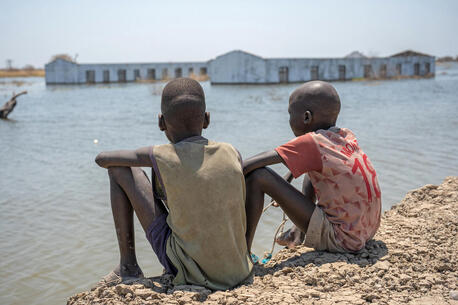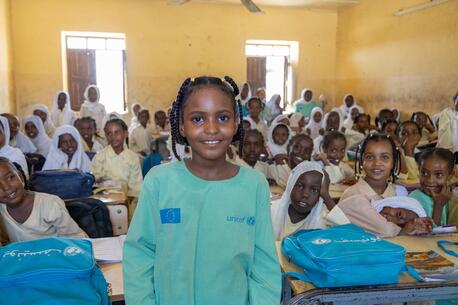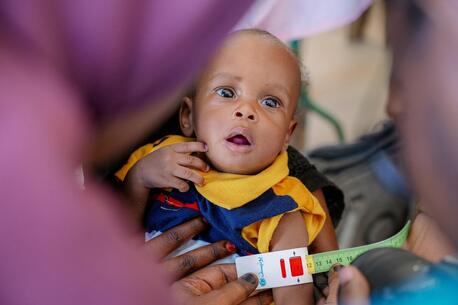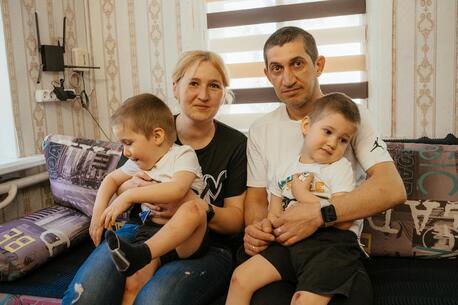
South Sudan Sinks Deeper into Crisis
UNICEF appeals for support to help step up its emergency response amid rising child malnutrition, disease outbreaks and spillover from the war in Sudan.
UNICEF is accelerating humanitarian relief efforts in South Sudan as the country sinks deeper into its worst crisis since declaring independence in 2011.
Children are most affected by the rapidly deteriorating conditions. Conflict in neighboring Sudan, persistent and unprecedented flooding and soaring food prices are pushing families to the brink.

UNICEF is reporting alarming increases in malnutrition and preventable diseases, including a massive measles outbreak. An estimated 42 percent of people have no access to safe water, and 2.8 million children are out of school, increasing their exploitation risks.
A record number of people in South Sudan need immediate assistance — including 5 million children
A record number of people — 9 million — are in need of immediate assistance, including 5 million children.
Among them are those who have been internally displaced by severe flooding and sporadic violence and some 300,000 refugees fleeing the war in Sudan. Most Sudanese refugees are women and children, and half of the children are school-aged.
UNICEF is concerned there could be more flooding that then triggers more disease, namely malaria and cholera/acute watery diarrhea — an especially dangerous condition for a malnourished child.

With hundreds of thousands of South Sudanese already internally displaced due to other conflicts, flooding and food insecurity, many northern border areas receiving Sudanese refugees were already under stress before the Sudan conflict broke out last April, UNICEF Emergency Specialist Emma Tuck reported. Local markets have suffered from the loss of trade routes from Sudan. Prices of basic commodities have soared.
Alongside other UN agencies and partners, UNICEF is mobilizing more support — including lifesaving nutrition supplies — to meet the immediate needs of children and families arriving in Upper Nile and Unity States.

UNICEF teams have been working all across South Sudan to:
- identify and treat children suffering from severe acute malnutrition
- vaccinate children against preventable diseases including measles
- install safe water supply points and distribute hygiene kits
- provide emergency sanitation facilities for displaced families living in camps
- strengthen systems to protect children against gender-based violence and sexual exploitation
- reunite unaccompanied and separated children with their families
- support teachers with incentives and training, provide learning materials and establish safe places where children can get back to learning
- provide mental health and psychosocial support to children and caregivers
- promote innovations that increase program efficiency and impact and help build climate resilience
But more funding is needed so that UNICEF can expand these interventions near the border and in other critical parts of the country — and avert catastrophe.

Help UNICEF reach more children and families in need like the children in South Sudan. Your tax-deductible donation can make a difference. Donate today.
HOW TO HELP
There are many ways to make a difference
War, famine, poverty, natural disasters — threats to the world's children keep coming. But UNICEF won't stop working to keep children healthy and safe.
UNICEF works in over 190 countries and territories — more places than any other children's organization. UNICEF has the world's largest humanitarian warehouse and, when disaster strikes, can get supplies almost anywhere within 72 hours. Constantly innovating, always advocating for a better world for children, UNICEF works to ensure that every child can grow up healthy, educated, protected and respected.
Would you like to help give all children the opportunity to reach their full potential? There are many ways to get involved.





